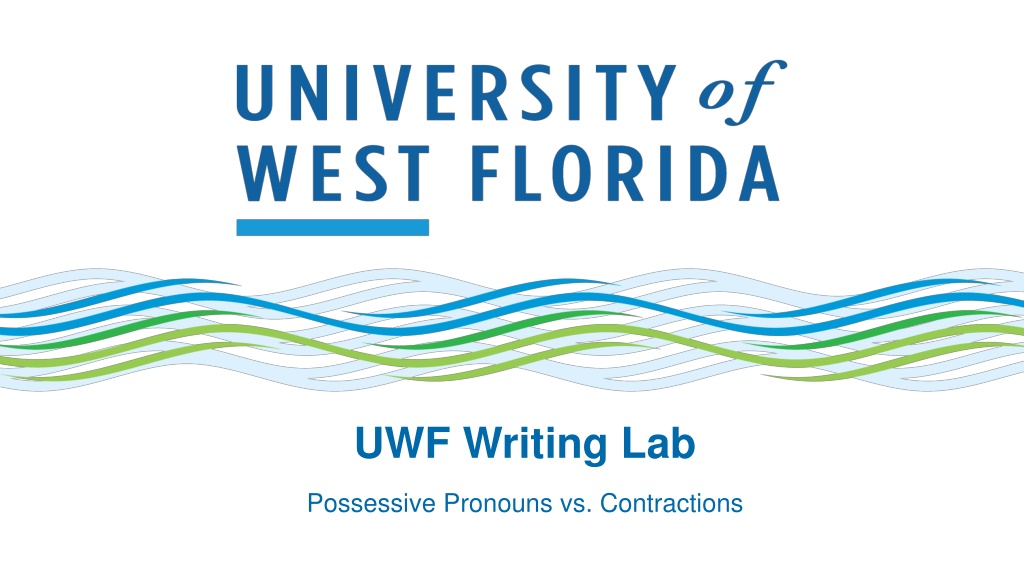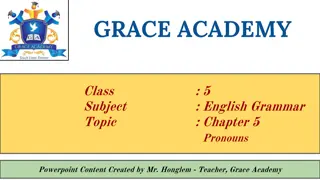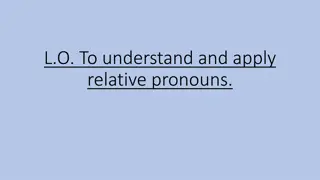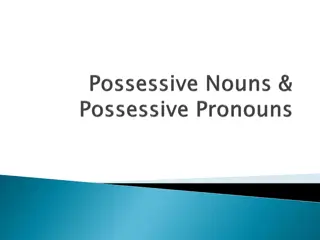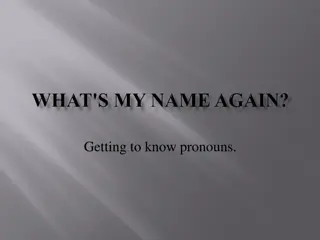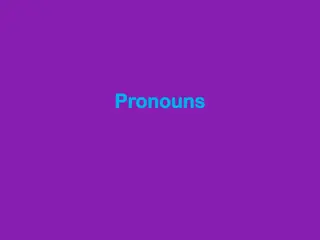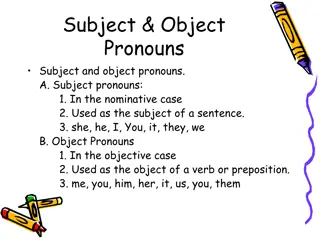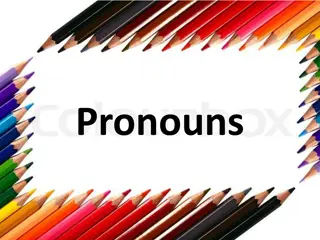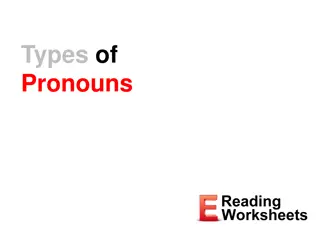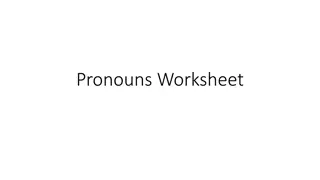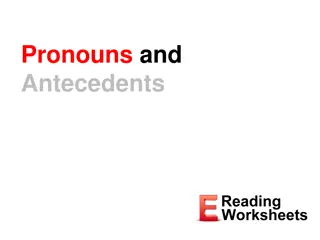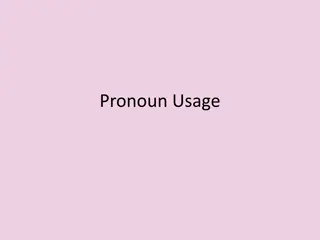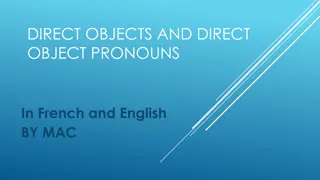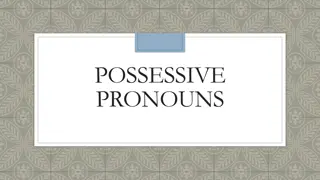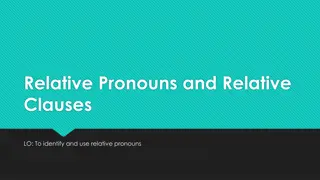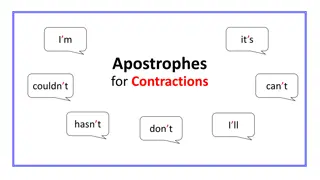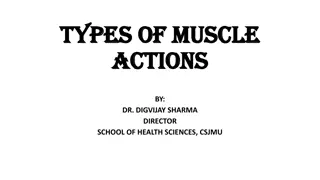Understanding Possessive Pronouns and Contractions
Learn about possessive pronouns like its, her, his, our, and contractions such as it's, they're, who's, and the importance of correctly using them in writing to avoid errors. Practice examples to reinforce understanding.
Download Presentation

Please find below an Image/Link to download the presentation.
The content on the website is provided AS IS for your information and personal use only. It may not be sold, licensed, or shared on other websites without obtaining consent from the author. Download presentation by click this link. If you encounter any issues during the download, it is possible that the publisher has removed the file from their server.
E N D
Presentation Transcript
UWF Writing Lab Possessive Pronouns vs. Contractions
Possessive Pronouns - Writers often mistake possessive pronouns for contractions. - These are possessive pronouns: its, her, his, our, mine, their, whose and your. - Remember, the possessive pronouns do not require apostrophes. - Other common possessive personal pronouns include his, hers, yours, ours, theirs, and mine.
Contractions - The following are contractions: it s (it is and it has) they re (they are), who s (who is), and you re (you are). - Remember, a contraction is a shortened form of a word or words in which the omitted letters are replaced by an apostrophe. - Also, remember that contractions are often too informal for some academic and professional writing.
Pronunciation Words that have similar sounds are called homophones. Examples of homophones include the following: their, they re, and there. Because these words sound similar, people often spell these words in their sentences incorrectly. Incorrect: Their were no questions following the speaker s address. Incorrect: They re were no questions following the speaker s address. Correct: There were no questions following the speaker s address.
Practice! This situation, difficult though it was, was their s to make. theirs Their were no questions following the speaker s address. there Whose leading the workshops today, and whose missing from the list of workshop speakers? Who s / who s
More Practice! The house is mines, the car is your s, but the bank account is our s. mine / yours / ours That helmet is her s, but the bike is your s. hers / yours
Thats all, folks! This lesson is part of the UWF Writing Lab Grammar Mini-Lesson Series Lessons adapted from Real Good Grammar, Too by Mamie Webb Hixon To find out more, visit the Writing Lab s website where you can take a self-scoring quiz corresponding to this lesson
